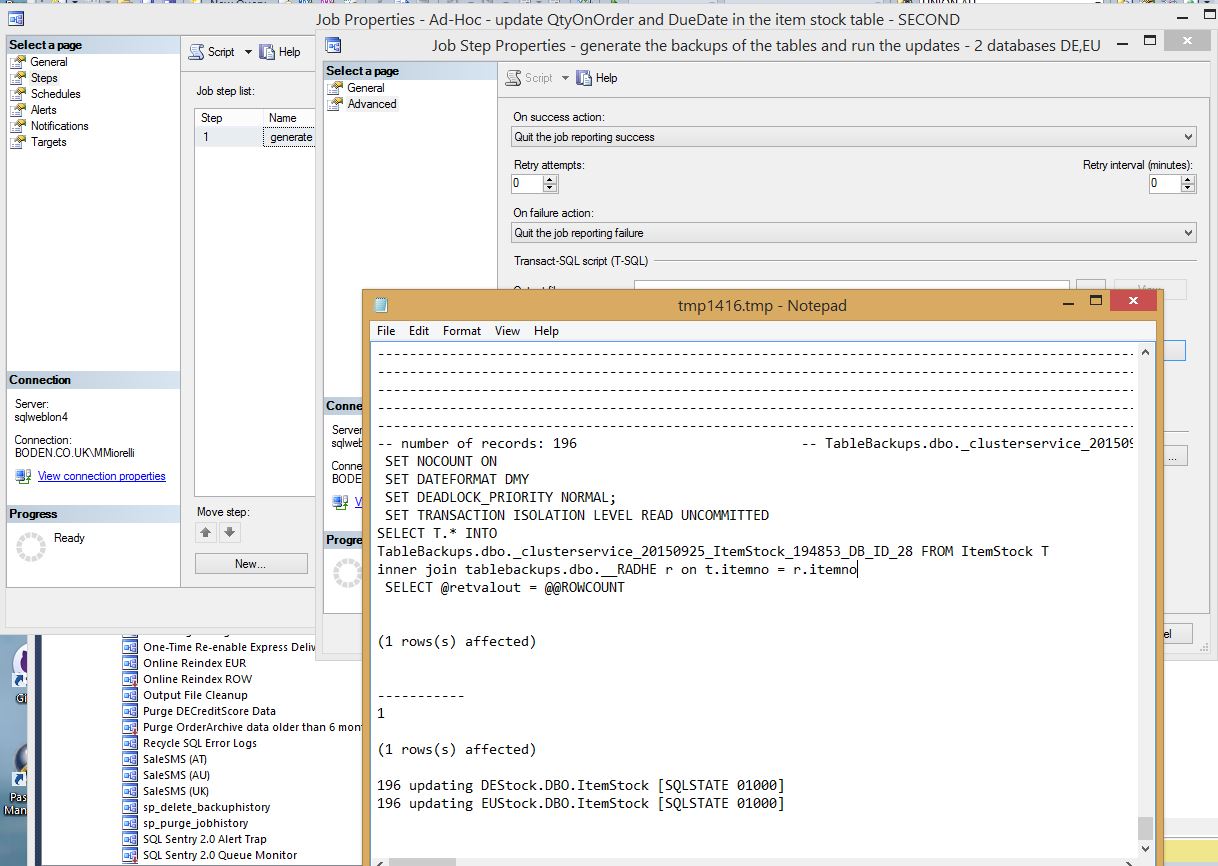By mistake I have run the job I just put into production, but the COMMIT TRANSACTION was commented out.
when I look at the job log, it printed that it did my updates with no problem.
when I run
dbcc opentran
it says:
No active open transactions. DBCC execution completed. If DBCC printed error messages, contact your system administrator.
no locks or blocks are in place, but where is my transaction?
the code for my job is here: with the commit transaction commented out
--================================================================
--RUN THE UPDATE
--================================================================
BEGIN TRANSACTION T1
SET TRANSACTION ISOLATION LEVEL REPEATABLE READ
SELECT @@TRANCOUNT
BEGIN TRY
UPDATE DEStock.DBO.ItemStock
SET QtyOnOrder = 0 ,
DueDate = NULL
FROM DEStock.DBO.ItemStock T
INNER JOIN TABLEBACKUPS.DBO.__RADHE R
ON T.ITEMNO = R.ITEMNO
print cast ( @@rowcount as varchar) + ' updating DEStock.DBO.ItemStock '
-- no updates for france
--UPDATE FRStock.DBO.ItemStock
--SET QtyOnOrder = 0 ,
-- DueDate = NULL
--FROM FRStock.DBO.ItemStock T
--INNER JOIN TABLEBACKUPS.DBO.__RADHE R
-- ON T.ITEMNO = R.ITEMNO
--print cast ( @@rowcount as varchar) + ' updating FRStock.DBO.ItemStock '
-- us is on a different schedule
--UPDATE USStock.DBO.ItemStock
--SET QtyOnOrder = 0 ,
-- DueDate = NULL
--FROM USStock.DBO.ItemStock T
--INNER JOIN TABLEBACKUPS.DBO.__RADHE R
-- ON T.ITEMNO = R.ITEMNO
--print cast ( @@rowcount as varchar) + ' updating USStock.DBO.ItemStock '
UPDATE EUStock.DBO.ItemStock
SET QtyOnOrder = 0 ,
DueDate = NULL
FROM EUStock.DBO.ItemStock T
INNER JOIN TABLEBACKUPS.DBO.__RADHE R
ON T.ITEMNO = R.ITEMNO
print cast ( @@rowcount as varchar) + ' updating EUStock.DBO.ItemStock '
--COMMIT TRANSACTION T1
END TRY
BEGIN CATCH
DECLARE @ErrorMessage NVARCHAR(4000);
DECLARE @ErrorSeverity INT;
DECLARE @ErrorState INT;
WHILE @@TRANCOUNT > 0
ROLLBACK TRANSACTION
SELECT
@ErrorMessage = ERROR_MESSAGE(),
@ErrorSeverity = ERROR_SEVERITY(),
@ErrorState = ERROR_STATE();
RAISERROR (@ErrorMessage, -- Message text.
@ErrorSeverity, -- Severity.
@ErrorState -- State.
);
END CATCH
the table used in the join comes from here:
how to insert a list of varchar values, into a single column table?

